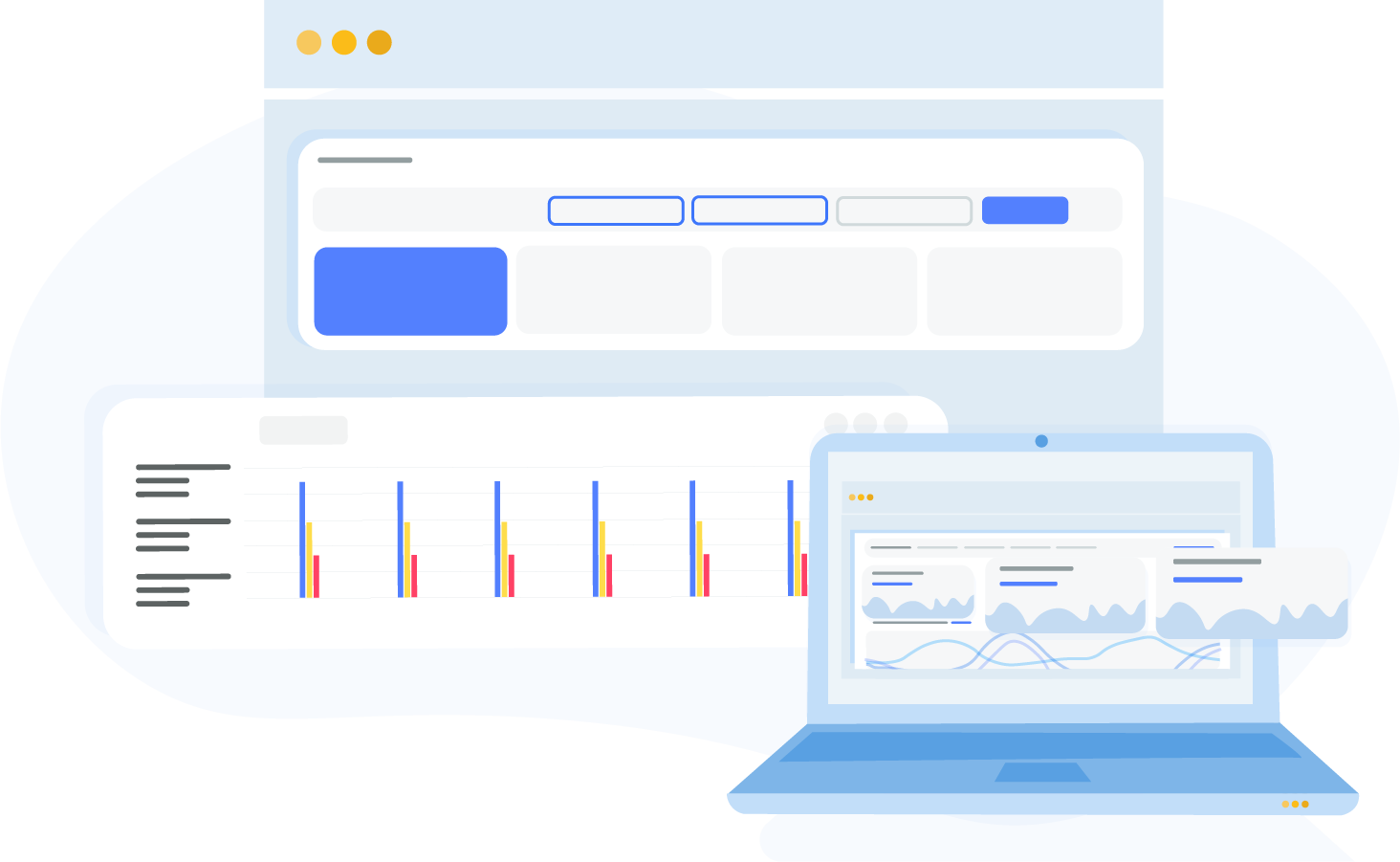4 minute read
The digital shelf remains the central focus for CPG omnichannel and ecommerce activity.
Ensuring all elements of a product’s online presence are performing as well as possible is critical for brands to remain competitive and protect their market share from smaller brands that have made inroads due to supply chain issues and panic buying during the pandemic.
This article will explore the different actions manufacturers can take to optimize their product’s online presence.
Improving digital commerce requires updating and upgrading the core digital shelf KPIs of search, ratings & reviews, and imagery.
Availability, being fundamental, also needs to be monitored regularly at a SKU level. Finally, predictive and actionable analytics are essential and will also be discussed here.


Findability is a critical aspect of the digital shelf experience for shoppers, and it has a direct impact on conversion rates. If a product can’t be quickly found, and if it doesn’t appear amongst the first products, it has a much lower chance of going in-basket.
Scoring well in search is competitive. There is often regular churn amongst the top ranking products. It’s important to constantly measure share of search (SOS) and search ranking to ensure your products are ranking well.
All retailers have different search algorithms and product display page (PDP) requirements. It’s very useful to partner with a service provider that puts in place an automation process that ensures your product content is compliant with the retailer and that optimizes your content for the retailer’s search engine.
Being sure product titles and product content is optimized influences organic search performance, and for certain retailer’s ratings play a role too.
Ratings and reviews are increasingly important as consumers seek out and trust user generated content more and more. In fact, often UGC is more influential in the buying journey than the manufacturer’s content.
For this reason it’s critical to optimize ratings and reviews management, and specialized partners for this specific task are increasingly used. The one-to-one engagement opportunity with customers that ratings and reviews provide is quite precious.

Consumers desire a meaningful connection with the brands they support in the engagement economy, so a brand that listens to them and responds to them is valuable. Some retailers offer the possibility to respond to reviews and if so, they should be responded to–especially negative ones–within the day or even within minutes. This boosts customer retention and is a very effective form of marketing.
Reviews can also be a useful source of product feedback for manufacturers. New product development ideas, product improvements and category trends can be detected within reviews.
Ensuring imagery is optimized for the digital shelf is central. Aside from the obvious benefit of discoverability, optimized imagery and content makes for a positive shopper experience because the consumer will be able to find all the information they’re seeking quickly and seamlessly.
The hero image needs to be designed for online visibility, with every detail and product attribute such as format, size, weight, nutritional information, allergens, sustainability and provenance readily evident.
Video and image carousels are also recommended wherever possible since online consumers can’t pick up packages and inspect them the way they can in a physical store.
No discussion of the digital shelf is complete without some mention of availability because it’s so consequential to all the other digital commerce KPIs. As more shoppers become omnishoppers, and global distribution continues to be a challenge, availability is getting both more difficult to manage and more important. Out of stock levels reached record heights during the pandemic, and continue to be an issue.

Naturally, availability impacts visibility and ranking in search, even after products come back online after a stockout. Location-based data analytics can pinpoint precisely where, and how often products are OOS. Put into the hands of customer teams, supply chain teams and sales field force teams, this information is actionable and can be a significant business lever.
Estore-based data that is taken from every single online location where products are sold is a powerful tool for manufacturers in their negotiations with retailers, supply chain teams and other partners.
Data accuracy comes from granularity. More and more manufacturers are seeking out comprehensive analytics because successful monitoring, strategy and execution in ecommerce is impossible without it.
High quality, reliable data can inform CPGs on each aspect of their digital commerce. This is possible with location-based analytics that collect data from all estores. The actions manufacturers take to address or anticipate issues and opportunities will only be effective if they use this kind of granular data. Granular means store and SKU level, every day.

Sample-based analytics, which have widespread use, yield false indicators and unclear measurement, leading to wrong decisions and actions. Another negative consequence they bring is the inability to approach retailers with powerful information they don’t possess that could boost category sales. Both internal and external conversations are weakened by inaccurate data.
Equipped with actionable and predictive analytics, CPG companies can not only confront the growing complexity of the omnichannel market but benefit from it. They can nurture relationships with ecommerce retailers with valuable category and assortment information, boost their digital shelf performance, and develop localized strategies for demand planning, inventory management, and shipping.
As more shoppers continue to trial online grocery in the US–even if they wind up making their purchase in-store–the quality of their online experience is crucial if they’re discovering egrocery.
The growing importance of the digital shelf is reflected in the amount of advertising dollars being invested in it. The digital media ad spend in the US in 2021 was $278 billion. The reason that number is so large is because the measurement capabilities that come with digital media are highly valuable as more people go online for groceries.

Specific-intent shoppers visit retailer sites just to read reviews and gather information sometimes, so this constitutes a prime advertising opportunity for brands, and a rare opportunity to collect first party data. When the deep purchase data possessed by retailers is coupled with the data a tech partner can provide, it holds potential for many actors, so optimizing for the digital shelf and attracting and retaining shoppers is a lucrative prospect for retailers, retailer partners and manufacturers alike.
While it is important to ensure that the online experience is optimized for consumers, manufacturers and retailers need to ensure that the on and offline shopping experience is seamless. Product pricing, information and advertising needs to be consistent across all media and in-store so that the customer journey is frictionless and streamlined.
DataImpact undertakes to ensure that the collection and processing of your data, carried out from the www.dataimpact.io site, comply with the Data Protection Act and the RGPD. This processing is necessary for the execution of our services and the internal functioning of our company. For any information on the protection of personal data, you can also consult the site of the Commission Informatique et Liberté www.cnil.fr.
Personal data are collected by : Société par actions simplifiée DataImpact whose registered office is at 39 Rue Lucien Sampaix, 75010 Paris, RCS PARIS 799 367 222 T: +33 (0)1 42 51 87 08
DataImpact is likely to collect personal data about you for the purposes necessary for its activity, whether in terms of recruitment, responding to your requests for information, execution and monitoring of service contracts. Types of data collected: DataImpact only collects data that is strictly necessary for the purposes of its activity. The personal data collected can be the following:
-In the context of a request for information (name, first name, email, telephone, company name).
-As part of a recruitment process: (surname, first name, email, telephone, company name), information on the curriculum vitae (marital status, surname, first name, date and place of birth, nationality, professional background, academic background, hobbies)
-If necessary, connection data including your IP address may be collected for purely statistical purposes.
The personal data collected by DataImpact are those directly given by the person concerned when using the contact form or surfing on the site www.dataimpact.io.
To date, DataImpact does not transfer, nor envisage any transfer of your personal data to a non-European Union member state.
Connection data are kept at the latest within one year after connection to the www.dataimpact.io website.
Data relating to applicants for a post are kept at the latest five years after the last contact, with a view to possible recruitment.
Data of prospects are kept no later than three years after the last contact.
Customer data are kept for the duration of the service contract.
DataImpact ensures that its employees and service providers, subcontractors or hosts, also respect the absolute confidentiality of the information provided to them.
We maintain in-house electronic and organizational security measures in relation to the collection, storage, and communication of data.
DataImpact takes all appropriate measures in order to facilitate the exercise of the rights of its clients regarding their personal data (right of access, rectification, deletion, limitation of processing, portability, to define the fate of its data after death).
The information provided in connection with the exercise of these rights is provided in writing or electronically. On request, the information may be provided orally. All requests should be sent by post to 739 Rue Lucien Sampaix, 75010 Paris or to [email protected].
In accordance with the regulations in force, your request must be signed and accompanied by a photocopy of an identity document bearing your signature and specify the address to which the reply should be sent. A reply will then be sent to you as soon as possible and in any event within one month of receipt of the request.
The new article 40-1 of the French Data Protection Act allows individuals to give instructions regarding the storage, deletion and communication of their data after their death.
You can read the procedure relating to these directives by following the following link: “https://www.cnil.fr/fr/ce-que-change-la-loi-pour-une-republique-numerique-pour-la-protection-des-donneespersonnelles#mortnumerique”.
You are informed that, during your visits to the www.dataimpact.io website, a cookie may, if necessary, be automatically installed on your browser software. A cookie is a small file stored on your computer. As such, it is a block of data that does not allow users to be identified but is used to record information relating to their browsing on the site. Cookies are used, on the one hand, to facilitate your navigation on the site and, on the other hand, for statistical purposes. In order to better know the frequentation of the site, we (mainly) measure the number of pages viewed, visitors, visits, as well as the activity of visitors on our site and their frequency of return.
The parameters of the browser software make it possible to inform about the presence of cookies and possibly to refuse them in the manner described at the following address “http://www.cnil.fr/vos-libertes/vos-traces/les-cookies/”.
You have the right to access, withdraw and modify personal data communicated through cookies under the conditions indicated above.
Article 6 III of the Law of 22 June 2004
Société par action simplifiée DataImpact
39 Rue Lucien Sampaix, 75010 Paris
T: +33 (0)1 42 51 87 08
M: [email protected]
RCS PARIS 799 367 222
Director of publication: Yacine TERKI
Hosting : O2 SWITCH 222 Boulevard Gustave Flaubert 63000 Clermont-Ferrand
The information contained and consultable on this site is provided for information purposes by DataImpact. They can be modified at any time without notice. Under no circumstances does it constitute advice or a service of any kind whatsoever. You assume full responsibility for the use of this site or the information it contains.
DataImpact cannot be held responsible for damages related to the consultation or use of the website by the user. Hypertext links may refer to third party sites over which DataImpact has no control.
DataImpact declines all responsibility for the content of these sites. The use of this service is reserved for strictly personal use. Any reproduction or representation, of all or part of the information, brochures or logos contained on the site, on any medium whatsoever, is prohibited. Failure to comply with this prohibition constitutes an infringement that may result in civil and criminal liability of the counterfeiter.

Join our exclusive webinarand discover key insights and strategies to elevate your retail game.